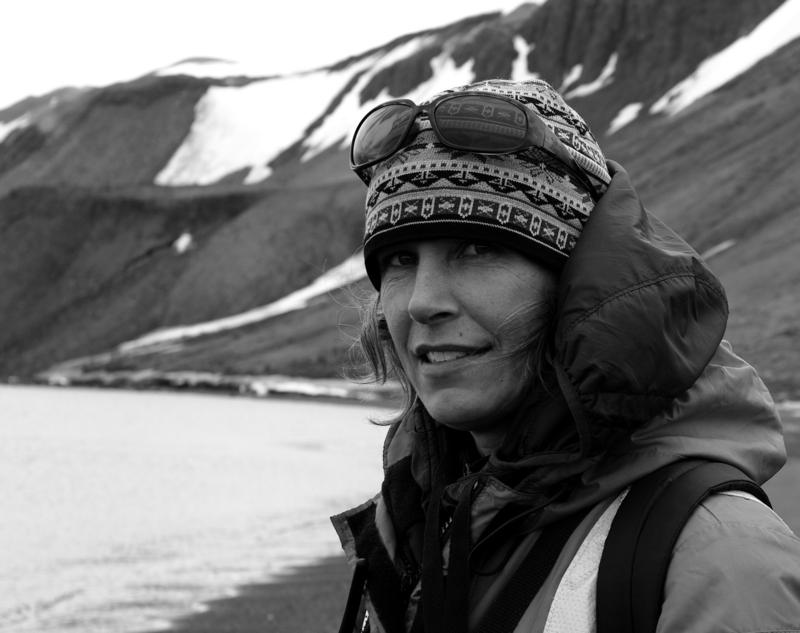
Elizabeth Bradfield‘s writings show a particular interest in poems engaged with a sense of place, biology, ecopoetics, history, queer identity, and collaborations with/responses to visual art, to performative poetry reading with video/poem pieces.
She is the author of four collections of poetry: Interpretive Work (Arktoi Books/Red Hen Press, 2008), Approaching Ice (Persea Books, 2010), poems about Arctic and Antarctic exploration, Once Removed (Persea Books, 2015), and Toward Antarctica (forthcoming in 2019 from Boreal Books/Red Hen Press, 2019).
Her poetry and essays have been published in The New Yorker, The Atlantic Monthly, Poetry, Field, Terrain.org, West Branch, and numerous other journals and anthologies.
A resident of Cape Cod, Massachusetts, Bradfield works as a naturalist locally and on expedition ships around the world. She teaches creative writing at Brandeis University, and University of Alaska Anchorage.
Stephen Burt underlines that alongside uncomplicated pleasures of nature poetry, her third book holds the rewards of nonfiction nature writing: Who knew that Atlantic beaches collect, along with “driftwood, shells, bones,” “a strange / surfeit of underwear bands—not the panties … but what snugged them”? Who else has seen “oaks ovaling the sky” where “in the low light of not-quite-sunset / close to a hundred tree swallows rose, gathered, / then came low to hit the water”?
Bradfield also writes honestly, lovingly, of her partner (a woman), her sister, and her sister’s young child, but the dominant notes come from far outside Bradfield’s home life—from the wooden maps of Inuit navigators; from the vicissitudes of shipboard life in her lengthy ghazal “At Sea”; from “the iced-over river, Alaska Range,” with its “spruce and spruce and a few hours / of thin blue sky.
Sandro Pecchiari
Midwinter: The Poet Imagines MacMillan
Eating Frozen Eider Eggs in Labrador
The day’s been chopped in half, so why not this, too? Yellow
yolk surrounded by meat that looks like ice. In this, we eat
the absent day, eat the frozen season, mouth giving warmth
and, yes, tenderness to flesh that will never be mothered. Back home,
the Cape’s long curl nestles eiders in the harbors. They mutter together
and dive, rise and ruffle, the sound on still days carrying into homes
where my mother would bend under the lamp glow and wash what others
gave her. A boy, I didn’t know where the ducks went after winter. Just away.
In spring, what treasure to find eggs snug in breast-down laid for them on tundra. I filled
my dory to the gunwales, couldn’t move for eggs, rowing like a woman stiff
in her joints, ginger with her bones. And now, November, my hatchet
through the hard, specked elliptical, my appetite for this land
that ate my father and so, cold seasons later, my mother.
Straits of Magellan
In strange channels, inside the entrance, snowed peaks across the mouth. Now. Water enlivened by whales. Hard to gauge size. Minkes? Orca? Brydes here? Speak out quick-eager, wrong. L resists the throat jump of first and is right: Sei.
rostrum pillowing silk water before
broken in arch, dive
Sei whales. Rare at home but seen two months ago, end of season, off Stellwagen, mind deep in the straddle of now and next, prepping for this water (then future). Startled to thrum. Shark-pocked skin, specifics of surfacing. A shine to them. This will be the biggest group of whales I’ll get. Ten seis.
breath held, expelled
they rise we surge toward looking
And here, four years future, over three hundred will wash ashore. Biologists will speculate toxic algae swarming warm seas. Which story should survive, be told, retold then?
